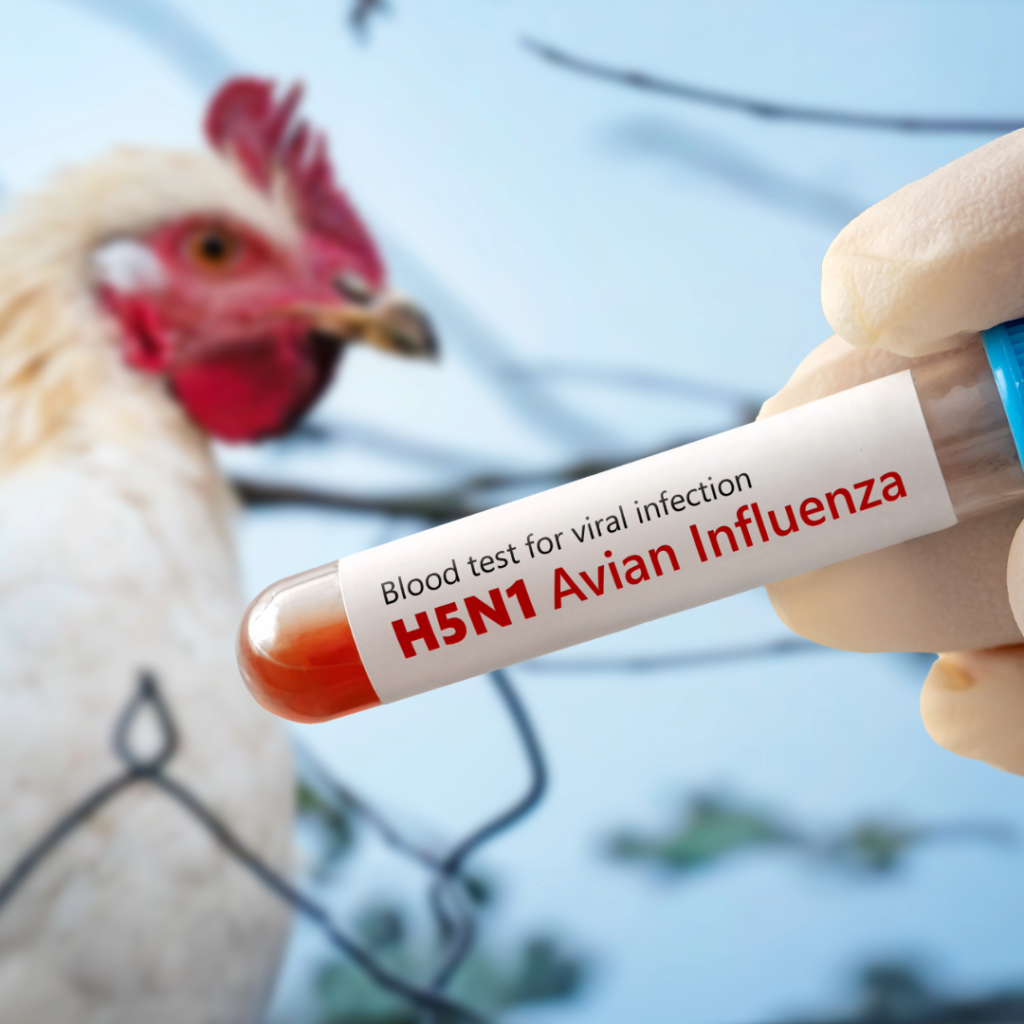Avian influenza, commonly known as bird flu, is a viral infection that primarily affects bird species but can occasionally infect humans and other animals. The current outbreak, caused by the H5N1 strain, has been particularly severe, impacting poultry, wild birds, and even mammals across the United States.

Bird Flu Impact on Poultry and Egg Prices
Since its detection in the U.S. in February 2022, the H5N1 virus has led to the culling of over 130 million birds, significantly disrupting poultry production. This reduction in supply has caused egg prices to soar, with some regions experiencing costs nearing $10 per dozen. Experts warn that the virus may become endemic, suggesting that elevated egg prices could persist.
Transmission to Mammals and Human Cases
Alarmingly, the virus has crossed species barriers, infecting mammals such as dairy cows. This zoonotic transmission has resulted in at least 66 human cases, primarily among individuals in close contact with infected animals. While human-to-human transmission remains rare, the situation underscores the need for vigilance and robust biosecurity measures.
Food Safety Concerns
Despite the outbreak, properly cooked poultry and eggs remain safe for consumption. The Centers for Disease Control and Prevention (CDC) advises that there is no risk of contracting bird flu from thoroughly cooked poultry products. However, it’s essential to avoid consuming raw or undercooked poultry and eggs to prevent potential exposure to the virus.
Preventative Measures for Bird Flu
To mitigate the spread of H5N1, the following precautions are recommended:
- Avoid Contact with Wild Birds: Limit exposure to wild birds and their habitats, as they can carry and transmit the virus without showing symptoms.
- Practice Good Hygiene: Wash hands thoroughly with soap and water after handling poultry or eggs.
- Cook Poultry Products Thoroughly: Ensure that all poultry and eggs are cooked to an internal temperature of 165°F (74°C) to eliminate potential viruses.
- Report Sick or Dead Birds: Notify local wildlife agencies if you encounter sick or dead birds, as this can help monitor and control the spread of the virus.
While the current avian influenza outbreak poses challenges to public health and the poultry industry, adhering to recommended safety measures can significantly reduce the risk of transmission. Staying informed and practicing good hygiene are key steps in protecting yourself and your community. As always, if you are feeling unwell, visit us at any of our three clinics.
